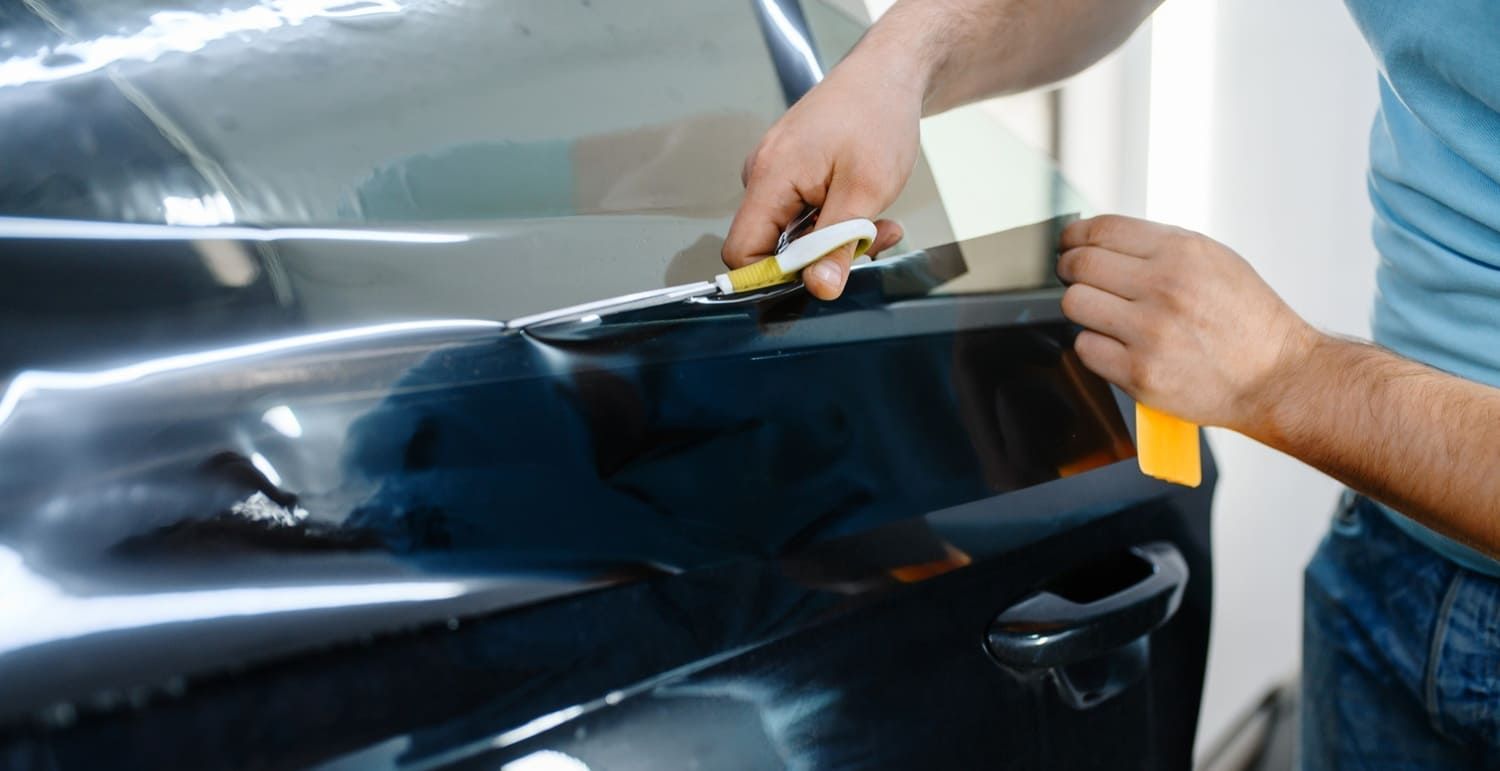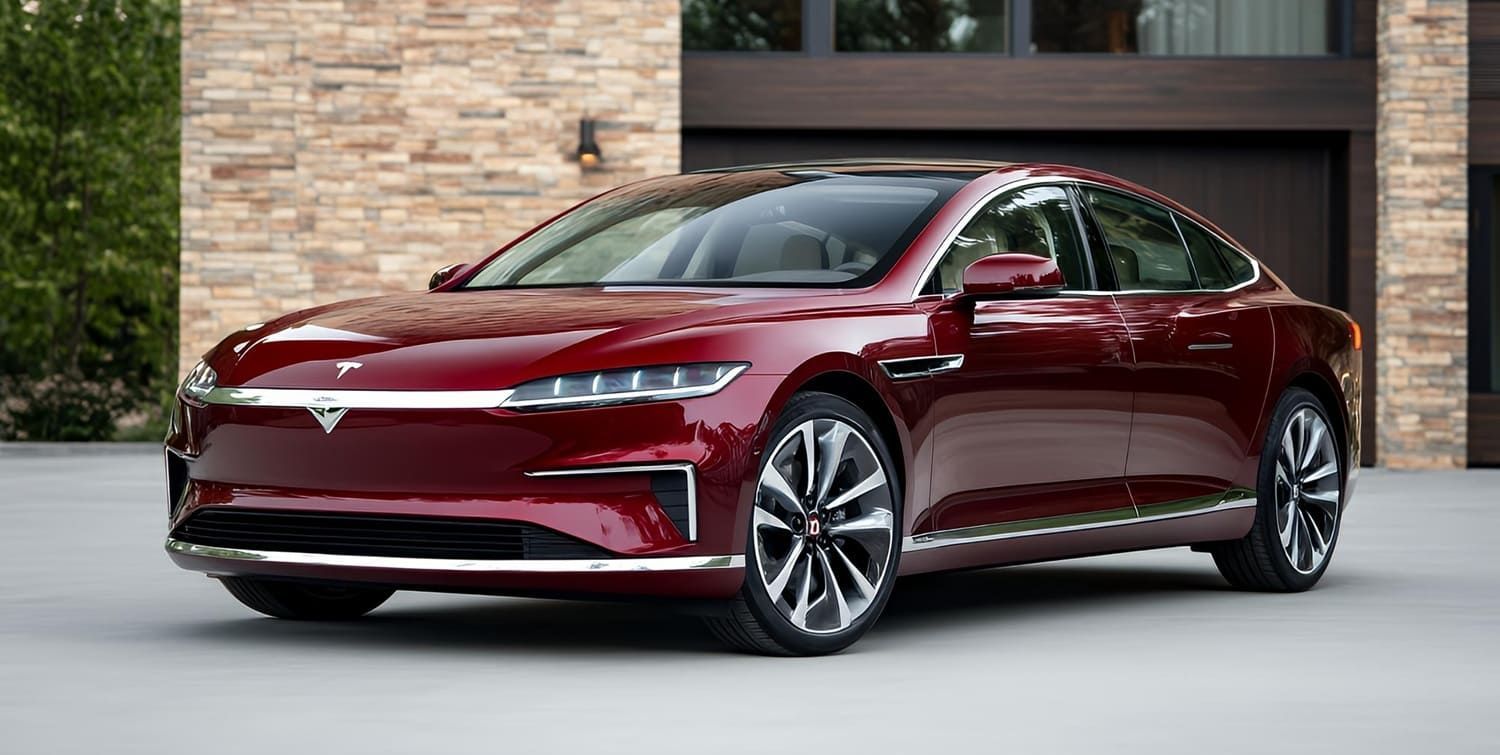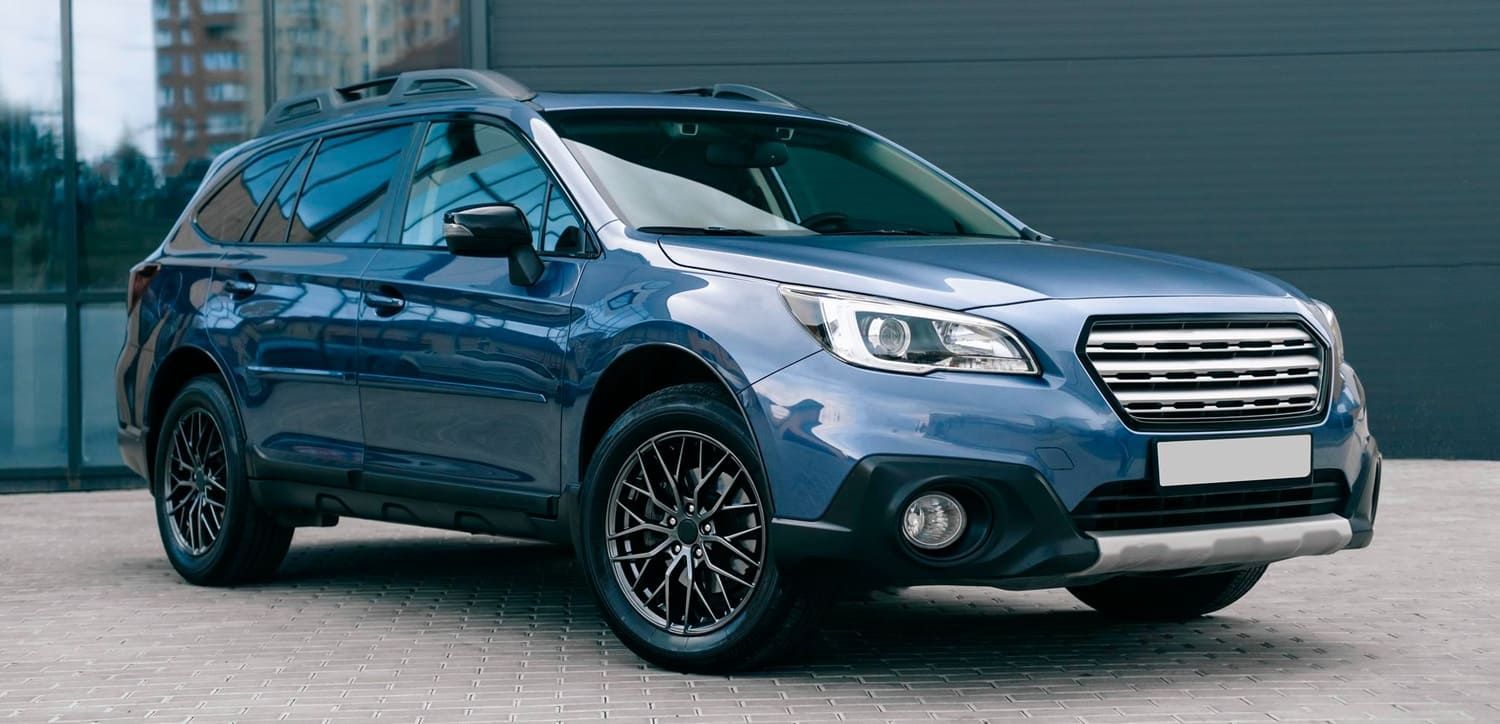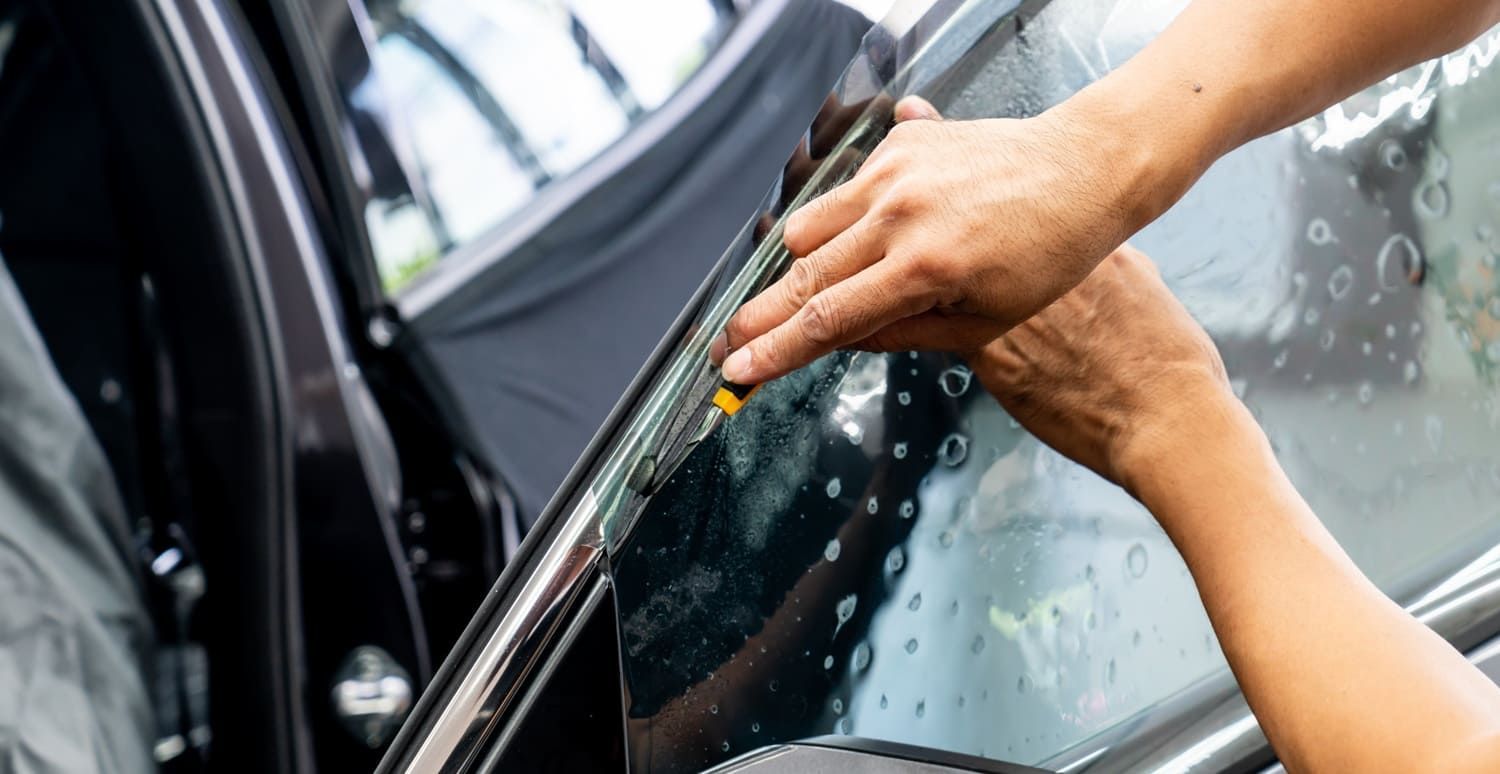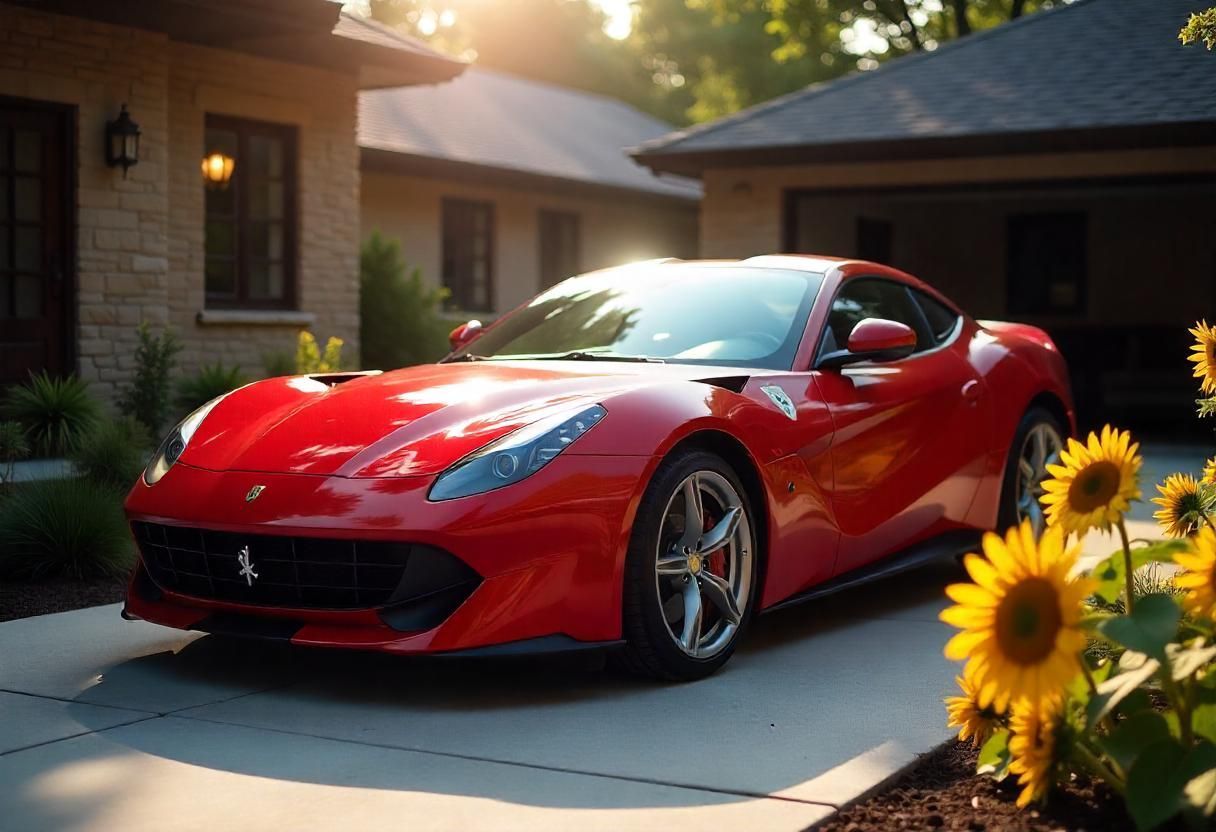Why Car Tinting Is a Must for Sun Protection
Car tinting involves applying a thin film to the interior side of your car's windows. This film is made of polyester and comes in various shades and thickness levels. This diversity allows car owners to choose a tint that suits both their aesthetic preferences and functional needs. The primary purpose of window tinting is to reduce the amount of sunlight that enters your vehicle. While it might seem like a simple upgrade, the impact of tinted car windows is far-reaching, offering more than just a cool appearance.

How Does Car Tinting Work?
Car window tinting works by blocking and reflecting a portion of the sun's rays. The tint film is designed to filter out ultraviolet (UV) rays, infrared rays, and visible light. This sophisticated technology ensures that the interior of your car remains cooler and more comfortable. By doing so, it reduces the heat inside the car, minimizes glare, and protects the interior from sun damage. Moreover, the film is engineered to ensure visibility is not compromised, maintaining clarity and safety while driving.
Benefits of Car Tinting for Sun Protection
UV Ray Protection
One of the most significant benefits of car tinting is its ability to block harmful UV rays. Prolonged exposure to UV rays can cause skin damage and increase the risk of skin cancer. Tinted car windows can block up to 99% of these harmful rays, providing an extra layer of protection for you and your passengers. This is particularly important for individuals who spend a lot of time on the road, as continuous exposure can have cumulative effects on skin health. Additionally, protecting against UV rays helps preserve the quality and longevity of your car's interior materials.
Heat Reduction
Another advantage of car tinting is its ability to reduce heat inside the vehicle. During hot summer months, the sun can turn your car into an oven. Tinted windows can significantly lower the temperature inside the car, making it more comfortable to drive and reducing the need for air conditioning. This not only keeps you cool but also saves on fuel consumption. By reducing the reliance on air conditioning, you also decrease wear and tear on your car's AC system, potentially extending its lifespan and efficiency.
Glare Reduction
Sun glare can be more than just an annoyance; it can be dangerous. Tinted car windows reduce glare from the sun and other vehicles' headlights, enhancing visibility and making it easier to focus on the road. This can help prevent accidents and improve overall driving safety. Reduced glare can also decrease eye strain, allowing for a more comfortable driving experience, especially on long journeys or during bright sunny days.
Interior Protection
The sun's rays can cause significant damage to your car's interior over time. Prolonged exposure to sunlight can fade upholstery, crack dashboards, and damage other materials. Car tinting helps protect your car's interior by blocking harmful rays and reducing heat exposure. This means your car will look newer for longer and maintain its resale value. Moreover, by preserving the condition of the interior, you ensure a more pleasant and visually appealing environment for both drivers and passengers.
Types of Car Window Tinting
When it comes to car tinting, there are several options to choose from. Each type of tint offers different benefits, so it's essential to understand your options before making a decision. The choice of tint can impact not only the level of protection but also the overall appearance of your vehicle.
Dyed Window Tint
Dyed window tint is the most affordable option and provides a dark appearance that helps reduce glare. However, it doesn't offer the same level of heat and UV protection as other tints. It's an excellent choice for those who want basic sun protection and privacy without breaking the bank. Its simplicity in design also makes it a popular choice for those looking to enhance the aesthetic appeal of their vehicle without additional features.
Metalized Window Tint
Metalized tint contains tiny metallic particles that reflect heat and UV rays. It provides excellent heat reduction and durability. However, it can interfere with electronic devices like GPS and radio signals. It's a good choice for those who prioritize heat reduction and durability. Despite the potential for electronic interference, many drivers appreciate the robust protection it offers against the sun's heat.
Ceramic Window Tint
Ceramic tint is a premium option that offers superior heat and UV protection without interfering with electronic devices. It's made of non-conductive ceramic particles that block up to 99% of UV rays and significantly reduce heat. While it's more expensive, it's an excellent choice for those seeking the best sun protection available. Its advanced technology ensures that drivers enjoy both high-performance protection and a comfortable driving experience.
Carbon Window Tint
Carbon tint offers a matte finish that doesn't fade over time. It provides excellent heat reduction and UV protection without the potential interference of metalized tints. It's a solid option for those who want a balance of performance and aesthetics. The non-reflective finish of carbon tint also adds a sleek, modern look to any vehicle, appealing to those who value style as much as function.
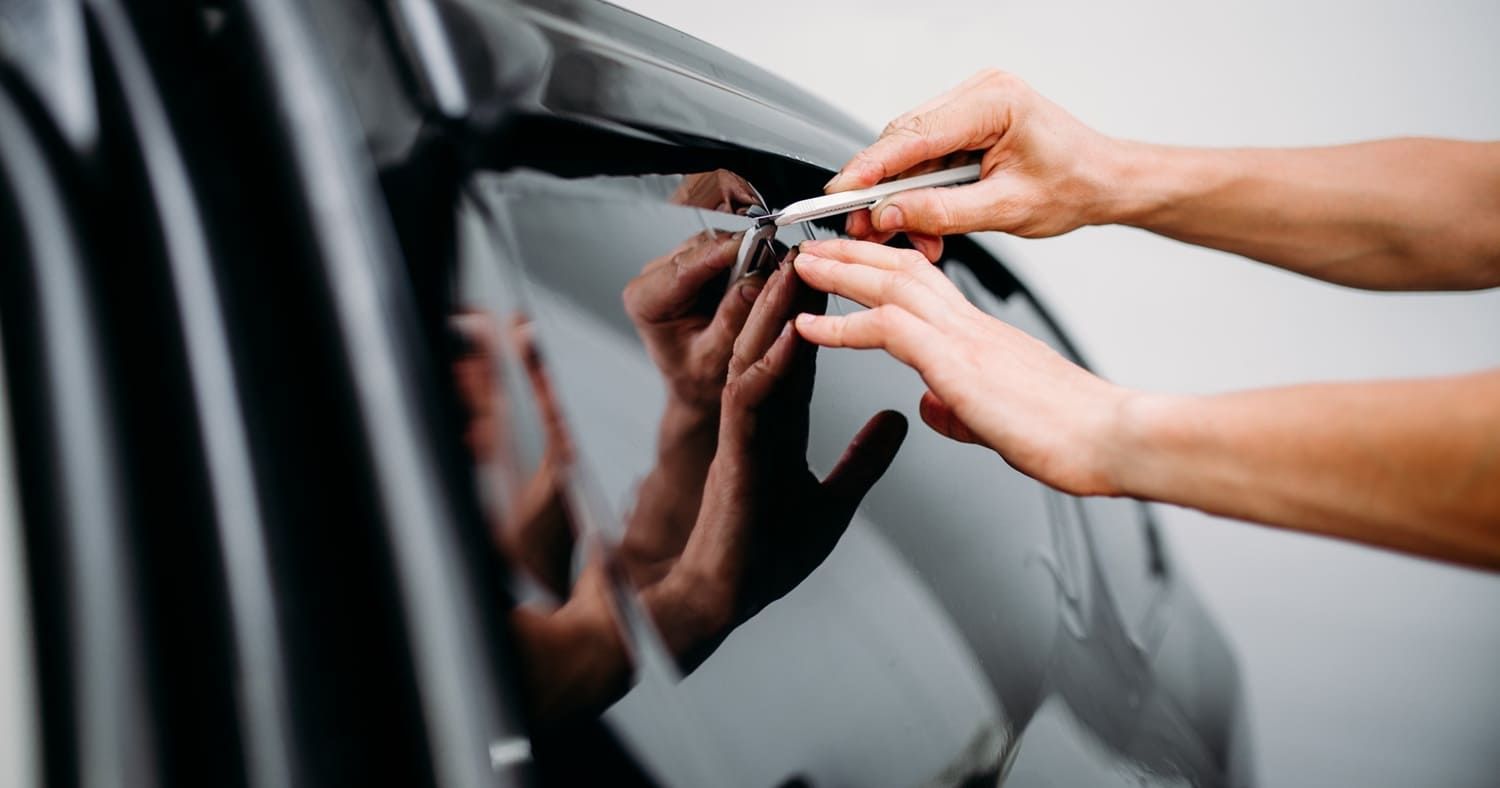
Legal Considerations for Car Tinting
Before you decide to tint your car windows, it's essential to be aware of the legal regulations in your area. Different states and countries have specific laws regarding the darkness and reflectiveness of car window tints. Ensure that your chosen tint complies with local regulations to avoid fines and legal issues. It's advisable to consult with a professional tinting service that is knowledgeable about the legal requirements in your area. This ensures that your tinting not only meets your needs but also adheres to legal standards.
Choosing the Right Tint for Your Vehicle
When selecting a tint for your vehicle, consider your needs and budget. If UV protection is your primary concern, opt for a ceramic or carbon tint. If you're looking for cost-effective options, dyed or metalized tints might be suitable. Consult with a professional car tinting service to discuss your options and find the best solution for your vehicle. Professionals can provide insights into the latest technologies and trends in tinting, ensuring you make an informed decision that enhances both the function and style of your car.
Conclusion
Car tinting is an essential investment for sun protection. With benefits like UV ray blocking, heat reduction, glare reduction, and interior protection, tinted car windows can enhance your driving experience while safeguarding your health and vehicle.
At Flying Window Tinters, we specialize in providing high-quality car tinting services in Longwood, FL, helping you stay cool and protected in your vehicle while maintaining its aesthetic appeal.
Whether you choose a basic dyed tint or a high-performance ceramic tint, the protection and comfort offered by car tinting make it a must for any vehicle owner. Investing in car tinting not only contributes to your comfort and safety but also enhances the longevity and value of your vehicle.
Don't wait until the damage is done—invest in car tinting today and enjoy the peace of mind that comes with knowing you're protected from the sun's harmful rays. Taking this proactive step not only benefits you in the short term but also ensures a better driving experience for years to come.
Contact Flying Window Tinters today for a free estimate, and let us help you protect and enhance your vehicle with professional car tinting!


